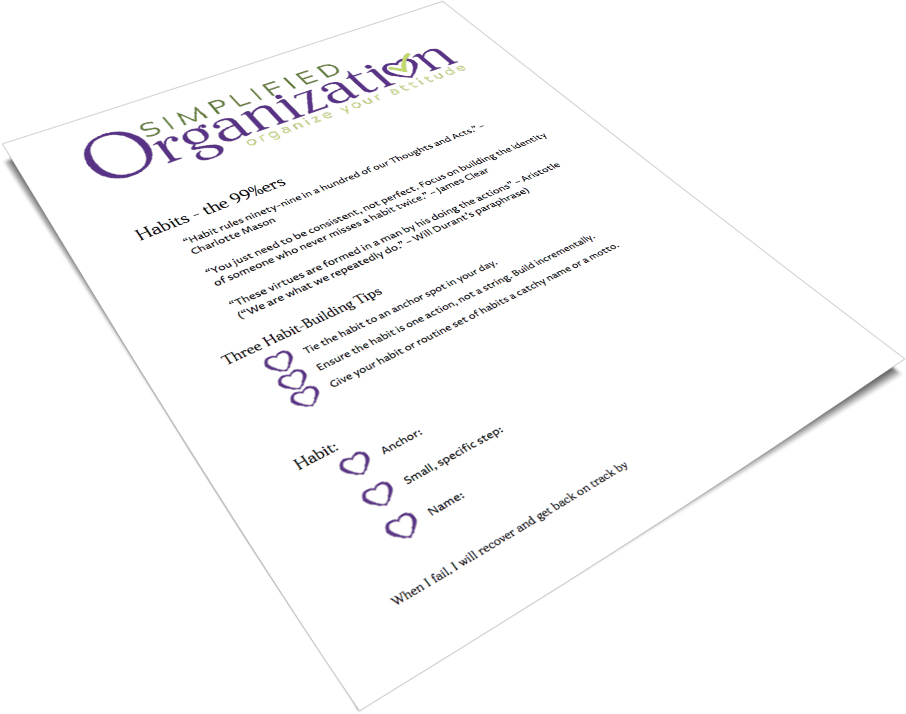We’ve all felt it.

We sip our coffee and stare down at our list.
We just don’t wanna.
Maybe we just can’t even.
Or, perhaps with the coffee we think we can take on that list, but come 10am or noon or 2pm, all the motivation is gone – poof – seemingly for good.
What do we do? Give up? Trudge, grudgingly, on? Fuss and whine, whether internally or, worse, externally in the tone we mete out to the kids?
We know none of those options are right, but we’ve all tried them. We’ve all been pulled down into those whirlpools of frustrated apathy.
“How do we pull ourselves out?!” – I have both heard the cry from others as well as felt it myself. Does someone have a life-preserver to toss us? Do I have a cord to pull that will magically inflate, allowing me to escape to shore?
Motivation is the inflatable we’re supposed to have, but not all motivation is created equal. Some brands of motivation will burst at the first pressure increase or the first rocky patch down the rapids. Other brands, however, are impervious and will carry us through – not without bumps and moments of panic, but safely and surely nonetheless.
What is motivation and where does it come from? The answer might surprise you.
Motivation, according to the dictionary, is “the general desire or willingness of someone to do something.” That’s what we need – the desire, or at least willingness, to do what we’re supposed to do.
Where does it come from? Rewards.
That’s why you often see the advice of buying a new pair of shoes after reaching a goal, or saving your coffee or chocolate for after the to-do list is crossed off.
That might be why you make your to-do list in the first place: To have the satisfaction – the reward – of crossing things off as you accomplish them.
However, these are cheap rewards, flimsy and unreliable. They are extrinsic – motivation from the outside that is not strong enough to bear us up when we don’t wanna.
When these motivations work, it is usually because we actually do want to, we just need a little perk. If we’re already buoyant, we enjoy such extras, and it looks like they’re working; in reality, however, it’s the internal motivation that’s making it all go.
Yes, there are indeed ways to increase our intrinsic motivation. We don’t have to rely on treating ourselves to boost our motivation. We can cultivate it from the inside. That’s at the heart of what ordo amoris means: learning to love what must be done.
If we love it, we will be motivated to do it. Love produces desire, which is motivation.

Strategies to increase intrinsic motivation through intrinsic rewards
To grow intrinsic motivation, we must find intrinsic rewards. At first, we might not think they will be effective.
Don’t dismiss them without trying.
1. Choose deliberate practice.
We want personal improvement and growth, maturity, sanctification, intrinsically.
When we see our work in terms of improving our ability, growing our capacity, we shift our perspective. Instead of seeing pointless, tedious tasks, we see stepping stones toward consistency, character, and competency.
When we want extrinsic rewards – treats, easy living – we despise all that is not that, especially dreaded chores and daily consistency. When we want personal growth and increasing ability, we see those same duties in the same light a pianist views his scales or a swimmer his laps. Without putting in our reps with the basics, we can never hope for better things when – and if! – the opportunity arises.
Want to be faithful in much? Be faithful in little first.
2. Take the time to notice & appreciate the work.
For years I tried to build the habit of making my bed. Such a dumb little task – why couldn’t I make myself do it regularly? The answer is in the question. I still thought of it in terms of a “dumb little task,” something I just had to do, even though I didn’t care and didn’t want to.
The habit of making my bed finally stuck when I stopped calling it dumb, stopped thinking of it as unnecessary, and instead took two seconds after it was done to stand back and notice it was done and enjoy it.
That small change made all the difference. It was no problem to make my bed. A habit of any kind is always followed by a reward, the more intrinsic the reward, the stickier the habit.
Take the time to notice the built-in reward of the duties you perform. Do not let yourself discount or bad-mouth either the duty or the result.
To grow our motivation, to order our affections, we must notice and care – it takes seconds and might seem silly at first, but both are integral to developing and directing character in the way it should go.
3. Share accountability with a friend.
Probably we have all been a part of accountability partnerships gone awry or simply ignored and forgotten. Such experiences make it easy for us to write off accountability with friends as ineffective.
Indeed, it is extrinsic motivation that doesn’t cost anything – two factors that seem to doom it to failure. However, it is a form of extrinsic motivation that can be leveraged into intrinsic motivation when done rightly with a friend who understands and is working toward the same or similar goals.
If the accountability group becomes a complaining party, a group of people who let each other off the hook easily, or a haphazard and vague partnership, it will not help us with motivation.
However, if we ally ourselves with one or a handful or even a dozen women with the same mindset, similar priorities, and firm commitment, we find ourselves caring more, and caring is the largest piece of intrinsic motivation – it is desire.
With likeminded women, we aren’t desiring reputation or status in the group. We’re building one another up, we’re confirming with each other that what we are seeking is right and good and possible, and we’re faithful to following up on our intentions.

This can be the little extrinsic nudge that pushes us over the hump into deliberate practice, noticing, and appreciation. On top of that, we get the bonus extrinsic reward of congratulations and camaraderie around our successes. These are not enough on their own to create motivation, but when there are embers and flickering flames of intrinsic motivation, such are fuel enough to bring it to a blaze.
Relationships like this help us to create the intrinsic motivation of identity, of noticing that we are taking deliberate steps and making progress. We see other people caring, and that helps us care.
Related:
These are certainly not the only ways to create desire and affection for our duty, but they are reliable ways. What others have you found work for you? Do you have a story of a time you used any of these that you’d share in the comments? Let’s carry on the conversation in the comments section.
Every habit has 3 parts. Don’t miss any!


One Comment